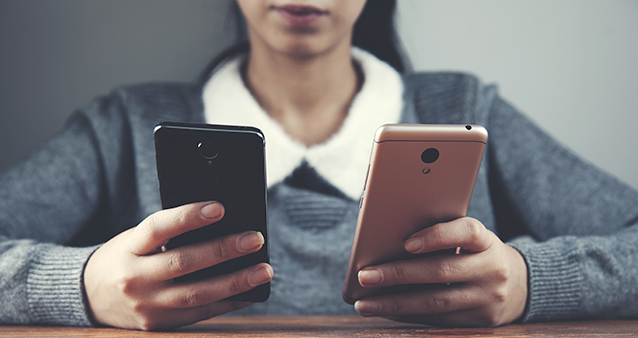Choosing the Right Smartphone: Key Specs to Compare

What makes one smartphone better than another? Here are the specs to check when you're comparing two phones side-by-side.
Maybe you're reaching the end of your contract and want an upgrade. Maybe your smartphone's been lost or stolen or co-opted as by your child to play Subway Surfers. Or maybe you're just looking to replace your current phone with something better. How do you compare two phones?
It's easy to get lost in the numbers, letters, acronyms and megapixels. And with almost 100 different handsets available on the South African market right now, varying in price from R259 (Nokia 105, in January 2022) to R37 999 (Samsung Galaxy Z Fold3 5G, in January 2022), you really are spoiled for choice.
The easy way to compare phones is by looking at their price points. In that case, you'll end up with head-to-head shootouts like the iPhone 12 versus the Samsung Galaxy S21 Ultra (both available the same Vodacom Red 5GB 600min contract), for example. But you still need to choose one... and it's tough to know which one is best for you.
A lot of it will come down to personal preference, and subject things like the colour or the way it fits into your pocket. But when it comes to the technical stuff, there are four key specs you should look at when making your comparison.
1. Display
You're going to be spending hours staring at your phone, so you want a display that's bright, sharp and easy to read. The techies will throw a term at you: AMOLED. To them it means Active Matrix Organic Light Emitting Diodes; to you it means a bright, clear picture. Bear in mind that as the size of the display grows, so does the physical size of the handset so think about whether you want something that's compact (and easy to carry) or something that gives you a nice big picture (and the ability to see what's happening in the series or movies you're watching).
2. Battery life
There's no point in having a mobile phone if you can't be away from a plug point for more than a few hours. Battery life is measured in milliamp hours (mAh), but since you're unlikely to know how many milliamps of power a prospective handset uses per hour to allow you to calculate battery life, just aim for the highest number you can. A phone with a 4000mAh battery should last you a solid day or so. It's an important number: the iPhone 12, for example, promises 2775mAh, compared to the Samsung Galaxy A12's 5000mAh. Does that make the A12 a better phone? Not necessarily... but it does mean you're less likely to spend your afternoon scrambling around for a charger if you go with the Samsung.
Manufacturers give indications of how long a phone's battery life will last under certain conditions, but take those numbers with a pinch of salt. Car manufacturers do the same with fuel consumption figures, and it's unlikely that your fuel economy has ever matched their claims.
3. Memory
Like computers, smartphones have two kinds of memory: Random Access Memory (RAM) and Read Only Memory (ROM). RAM, along with the phone's processor capacity, determines the speed and responsiveness of the phone. ROM is what you'll likely know as 'storage' – the memory used to store the operating system, apps and all the images, videos and photographs.
If you're travelling and want to take loads of pics and always have a movie or two ready to watch, you'll need to look at storage of 64GB or more. Remember, the operating system and apps can take up a significant amount of space, so don't expect to be able to store 64GB of your own stuff on a 64GB phone.
On the other hand, if you're using it to simply run WhatsApp and stay in touch, you can look at a phone with less memory. It'll be cheaper, too. Some Android models allow you to boost the memory by inserting a micro SD card, whereas iPhone models don't.
4. Operating system
Ah, the great debate. Much like you get Dog People versus Cat People, Marvel Fans versus DC Fans, and People Who Compare Insurance on Hippo.co.za versus People Who Are Living Wrong, the smartphone world is divided into two camps: iOS (Apple) vs Android (everything else).
iOS is only good for running Apple products, so you're locked into the Apple universe if you go that way; but it also means that your iPad, Apple Watch or Macbook will work seamlessly with your iPhone.
Multiple manufacturers – Samsung, Huawei, Nokia and more – use Android as their operating system. The cutesy names for each version (Ice Cream Sandwich, anyone?) belie a powerful, flexible OS that's widely trusted and easy to use. It really is a matter of personal preference and which one you find easiest to use. iOS users tend to sanitise their hands after using an Android phone; while Android users (rightly) point to iOS's frustrating inflexibility.
Still not sure what you're looking for? Use Hippo's new Cellphone Contract Comparison tool to check out specs and compare contracts.
This article is for informational purposes only and should not be construed as financial, legal or medical advice.
Hippo Blog Categories

































